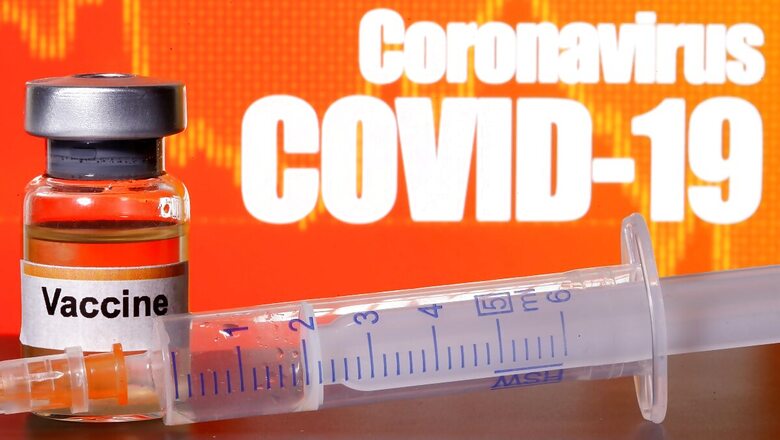
views
One in four adults globally does not want to get vaccinated against COVID-19, largely due to their apprehensions about side-effects and effectiveness of the vaccine, but the proportion of such people is much less at about 13 per cent in India, a new survey showed on Tuesday. The World Economic Forum-Ipsos survey of nearly 20,000 adults from 27 countries also put Indians as the third most optimistic population — after China and Saudi Arabia — about a COVID-19 vaccine being available in 2020 itself.
Globally, 74 per cent respondents said they would get a vaccine for COVID-19 if it is available, but more than half (59 per cent) do not expect that one will be available before the end of this year. Arnaud Bernaert, Head of Shaping the Future of Health and Healthcare at the WEF, said, "the 26 per cent shortfall in vaccine confidence is significant enough to compromise the effectiveness of rolling out a COVID-19 vaccine. It is therefore critical that governments and the private sector come together to build confidence and ensure that manufacturing capacity meets the global supply of a COVID-19 vaccination programme.
This will require cooperation between researchers and manufacturers and public funding arrangements that remove restrictions to vaccine access". The countries where the COVID-19 vaccination intent was found to be the highest are China (97 per cent), Brazil (88 per cent), Australia (88 per cent), and India (87 per cent).
Those where it is lowest are Russia (54 per cent), Poland (56 per cent), Hungary (56 per cent), and France (59 per cent). However, in most countries, those who agree outnumber those who disagree by a significant margin, the WEF said while announcing the survey results. Across all 27 countries, 59 per cent respondents disagreed that "a vaccine for COVID-19 will be available to me before the end of 2020".
China stood out for its optimism with 87 per cent of those surveyed expecting a vaccine to be ready this year, followed by Saudi Arabia (75 per cent) and India (74 per cent). prevails in Germany, Belgium, Japan and Poland where fewer than one in four adults anticipate that a vaccine will be available at some point in the next four months, the WEF said.
The most frequently mentioned reason for not taking a vaccine among those who would not get one is worry about side effects, followed by the perception of effectiveness. There are also several countries that feel they are not sufficiently at risk and a proportion who are against vaccines in general, the survey results showed. Geneva-based WEF, which describes itself as an international organisation for public-private cooperation, said the survey was conducted between July 24 and August 7 by Ipsos, the world's third-largest market research firm, on its global advisor online survey platform.
The surveyed countries also included the US, Canada, Malaysia, South Africa, Turkey, South Korea, Peru, Argentina, Mexico, Spain, Netherlands, Sweden, and Italy.
.




















Comments
0 comment